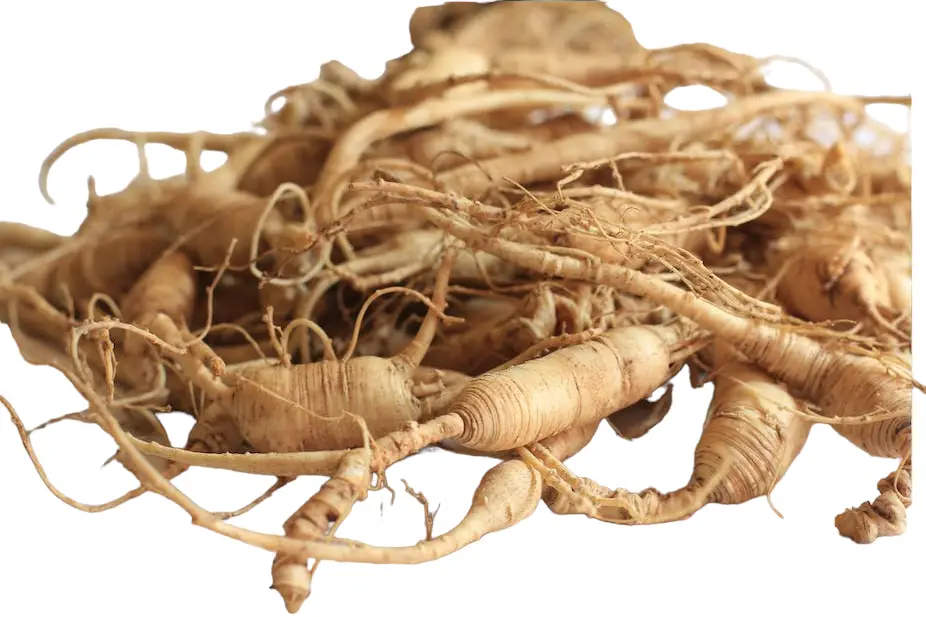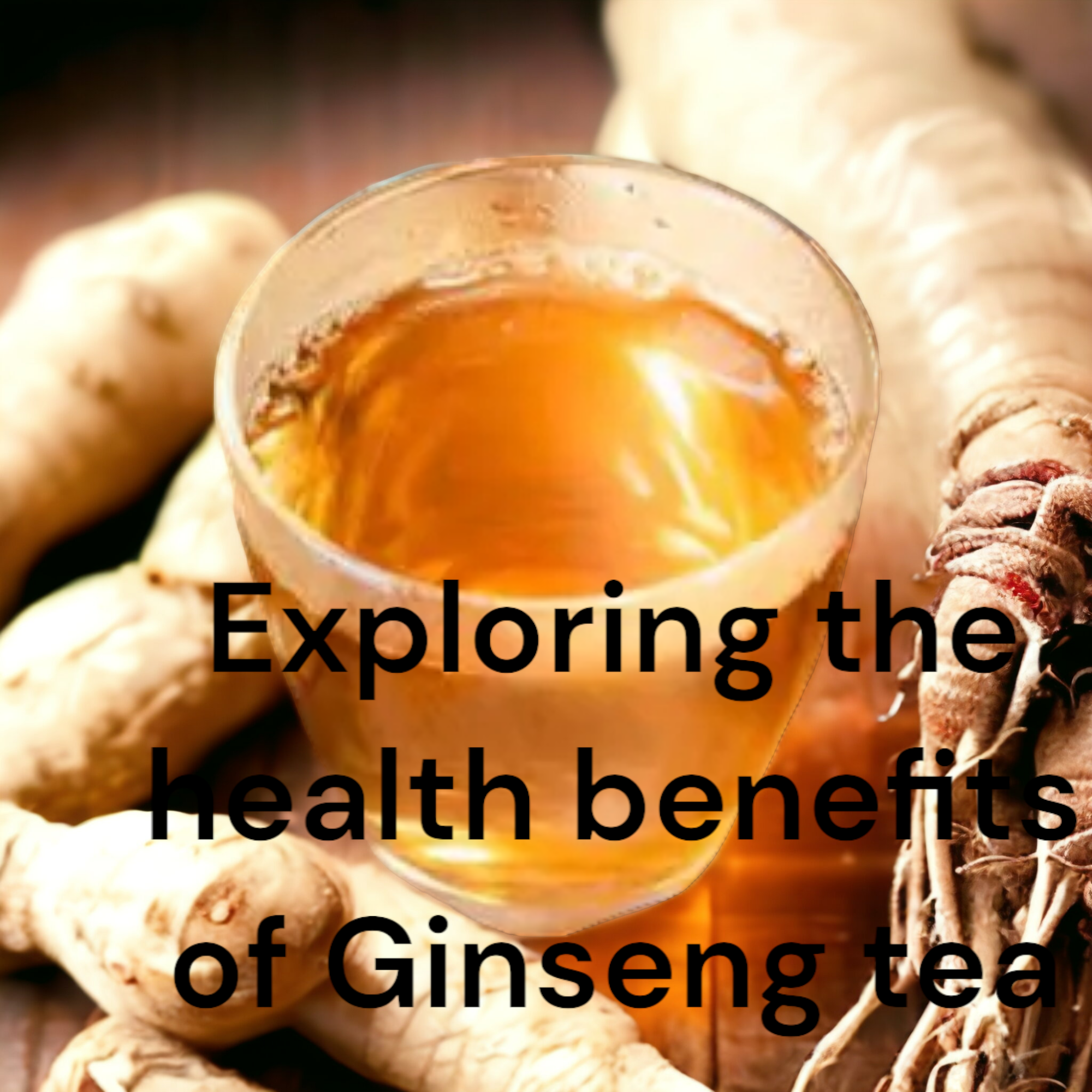Herbal teas enjoy global popularity, and this widespread acclaim is obtainable.
These caffeine-free beverages offer a safe choice for individuals of all ages and various health conditions. Among the herbal teas that have garnered significant attention, Ginseng stands out.
You can get this from the roots of the ginseng plant; this aromatic elixir has captured tea enthusiasts and health-conscious individuals.
This comprehensive article will delve into ginseng tea, examining its varieties, preparation methods, potential health advantages, and the cultural significance that has made it a revered beverage worldwide.
Varieties of Ginseng
Ginseng belongs to the genus Panax, which means “all-healing” in Greek. There are several species of Ginseng, but the most well-known and widely used are American Ginseng (Panax quinquefolius) and Asian Ginseng (Panax ginseng). Siberian Ginseng (Eleutherococcus senticosus) is a related plant often referred to as “eleuthero” and is not a true ginseng but shares some similar properties.
You can prepare Ginseng tea using dried ginseng slices, which are commonly available. Finding fresh Ginseng in regular grocery stores might be challenging, but specialty stores are more likely to carry it. Alternatively, you can opt for pre-made varieties of ginseng tea if you prefer to avoid brewing it from scratch.
Historical Significance

Ginseng dates back thousands of years and is primarily used in traditional Chinese medicine. Ginseng has long been prized for its capacity to increase vigor, enhance cognition, and encourage longevity. It was highly valued as a reserve for emperors and nobility, and wild Ginseng was considered incredibly precious. Native American tribes also used American Ginseng for its medicinal properties.
Benefits
This incredible tea has garnered much attention for its numerous potential health benefits. We explore some of these below:
Boost Immune Function
Extensive research, including test-tube and animal studies, has explored the potential immune-enhancing properties of Ginseng. It is proven to contribute to strengthening immunity by combatting bacteria, suppressing cancer cells, and exhibiting antiviral properties. So, if you’ve ever wondered about the benefits of ginseng tea, consider its positive impact on your immune health. This is because of the ginsenosides bioactive compounds that have demonstrated immunomodulatory effects.
Antioxidant properties
Ginseng and its key components, ginsenosides, are rich in antioxidants, which combat inflammation and cell damage. Inflammation is a primary factor behind conditions like heart disease, diabetes, Alzheimer’s, and cancer. Reviews of studies, both in animals and clinical trials, reveal that ginseng and specific ginsenosides can reduce free radicals (unstable molecules linked to chronic diseases), enhance their elimination, and promote the activity of antioxidant enzymes. This underscores another advantage of ginseng tea: it can bolster your immunity and protect against inflammation.
Cholesterol Lowering in The Body
Ginseng tea has been linked to many cardiovascular benefits. It has been associated with lower blood pressure, reduced LDL (bad cholesterol) levels, and improved blood circulation.
An analysis of 18 studies involving human participants determined that Panax ginseng can potentially promote heart health by reducing total and LDL cholesterol, commonly called “bad” cholesterol.
Energy and Vitality Boost
It is renowned for its natural capacity to enhance energy levels and is often incorporated into energy drinks and supplements. Researchers have explored its Potential in mitigating fatigue among individuals with chronic fatigue syndrome. While initial findings suggest a potential benefit, more extensive research is needed to establish a definitive conclusion regarding Ginseng’s effectiveness in treating chronic fatigue.
Blood Sugar Regulation
It can help regulate blood sugar, making it a beneficial addition to the diets of persons with diabetes or those who are at risk of getting the disease. Ginsenosides shows to enhance insulin sensitivity and improve glucose metabolism. This can contribute to more stable blood sugar levels, reducing the risk of diabetic complications.
How to Make Ginseng Tea
Brewing ginseng tea is an art that allows individuals to tailor their tea-drinking experience to their preferences. Here is a simple guide on how to prepare ginseng tea:
Ingredients
You will need dried ginseng roots or tea bags and hot water to brew ginseng tea.
Boiling Water
Heat water below boiling, ideally around 175-185°F (80-85°C).
Steeping
Place the desired amount of ginseng roots or tea bags in a cup and pour the hot water over them.
Steep Time
Depending on your taste preferences, give the tea a steeping time of between 3 and 5 minutes. The tea has time to extract its flavors and any possible medicinal ingredients.
Sweetening (Optional)
You can enjoy this in plain, some prefer to enhance its taste with natural sweeteners like honey or a squeeze of lemon.
Does Ginseng tea Contain Caffeine?
Ginseng tea is typically caffeine-free. It is made from the root of the ginseng plant, and the tea itself does not naturally contain Caffeine. This makes it a suitable option for individuals sensitive to Caffeine or those looking for a non-caffeinated beverage. However, it’s essential to note that if ginseng tea has other ingredients or blends, such as Ginseng and green tea, some caffeine may be present from the additional components. Always check the product label or inquire about the specific combination to be sure of its caffeine content.
Can I drink Ginseng Tea every time?
It is safe to drink ginseng tea daily. However, avoiding ginseng tea is advisable if you are pregnant due to insufficient research confirming its safety during pregnancy.
A study’s findings led researchers to recommend caution when consuming Panax ginseng during pregnancy, particularly in the first trimester and lactation.
How much Ginseng can you take daily?
Excessive consumption of ginseng extract in tea can lead to unwanted effects, although toxicity is rare. Overindulging in Ginseng may lead to diarrhea, restlessness, insomnia, elevated blood pressure, and reduced appetite.
Research on Ginseng typically employs doses ranging from 200 milligrams to 3 grams daily for 12 weeks.
Conclusion
In conclusion, it is a beverage that marries tradition with potential health benefits, offering a sensory experience that captivates the palate while stimulating the senses. Its unique flavor and versatility make it an intriguing choice for tea enthusiasts and health-conscious individuals.
Although it promises various possible benefits, individual reactions might vary, and further scientific study requires it support these claims conclusively. Therefore, seeing a doctor before introducing it into your daily routine is recommended, especially if you have underlying health conditions.
